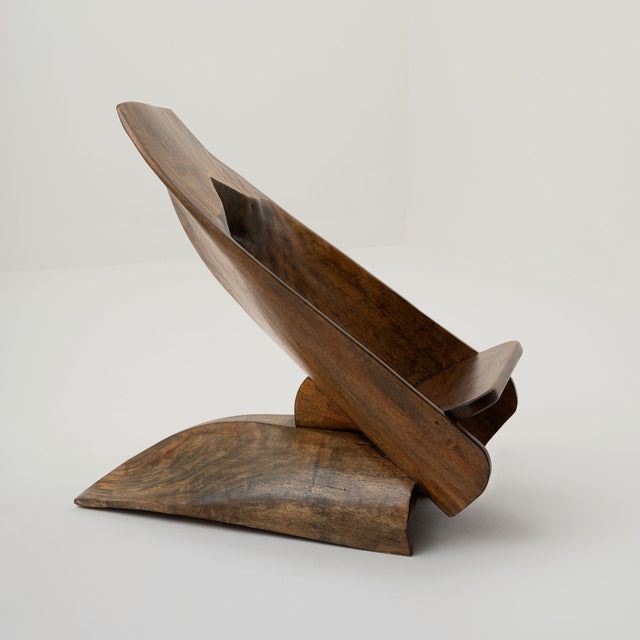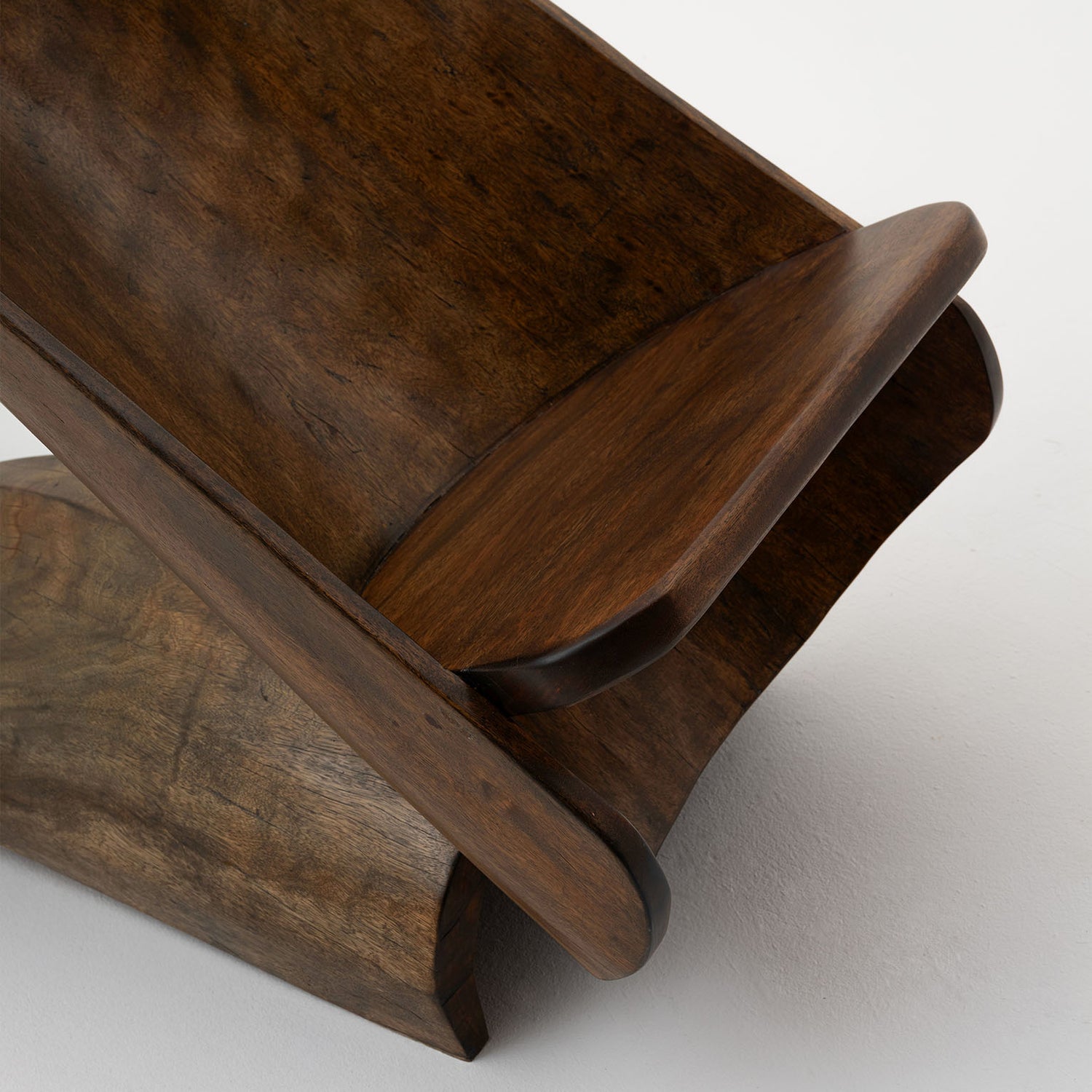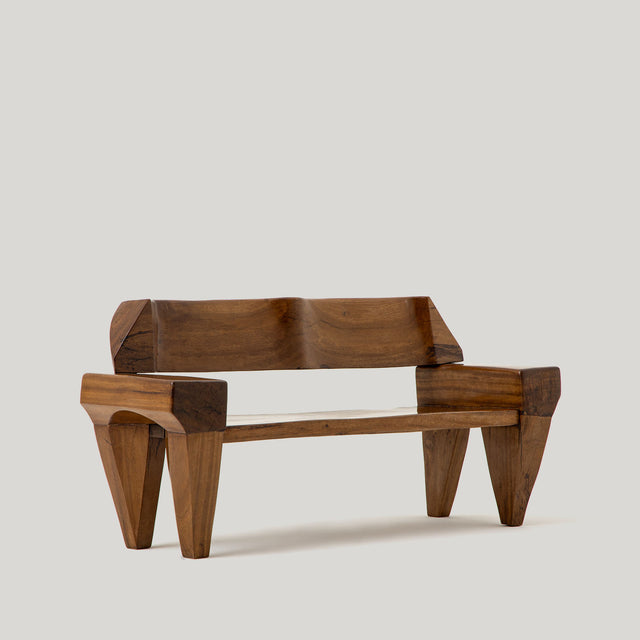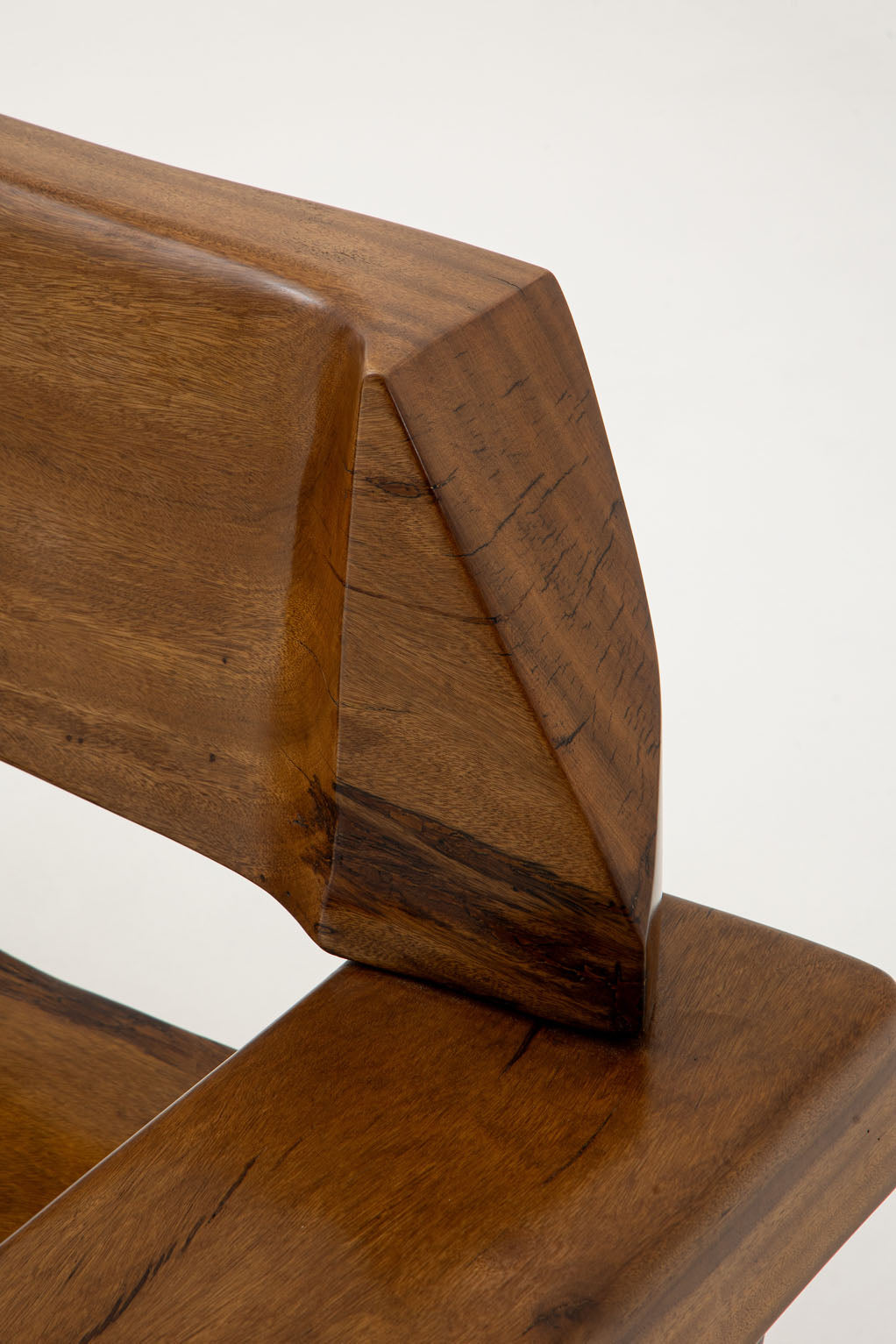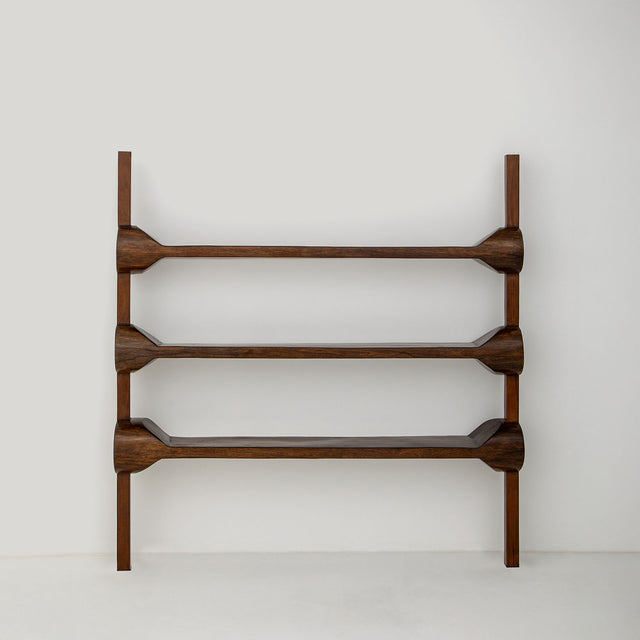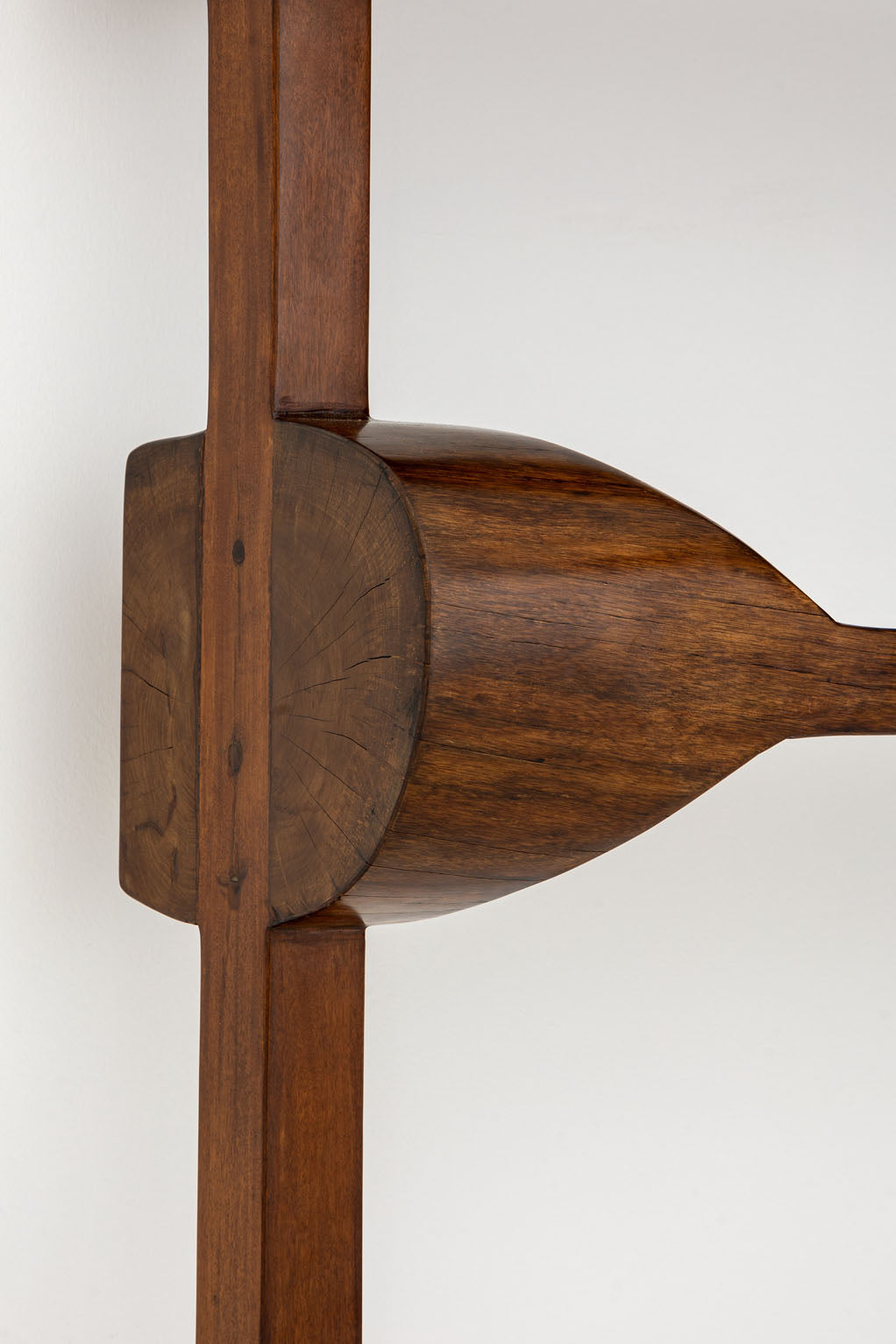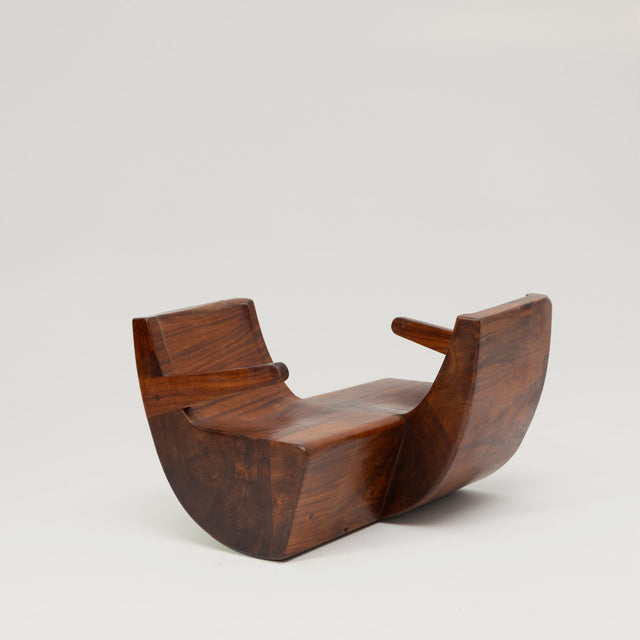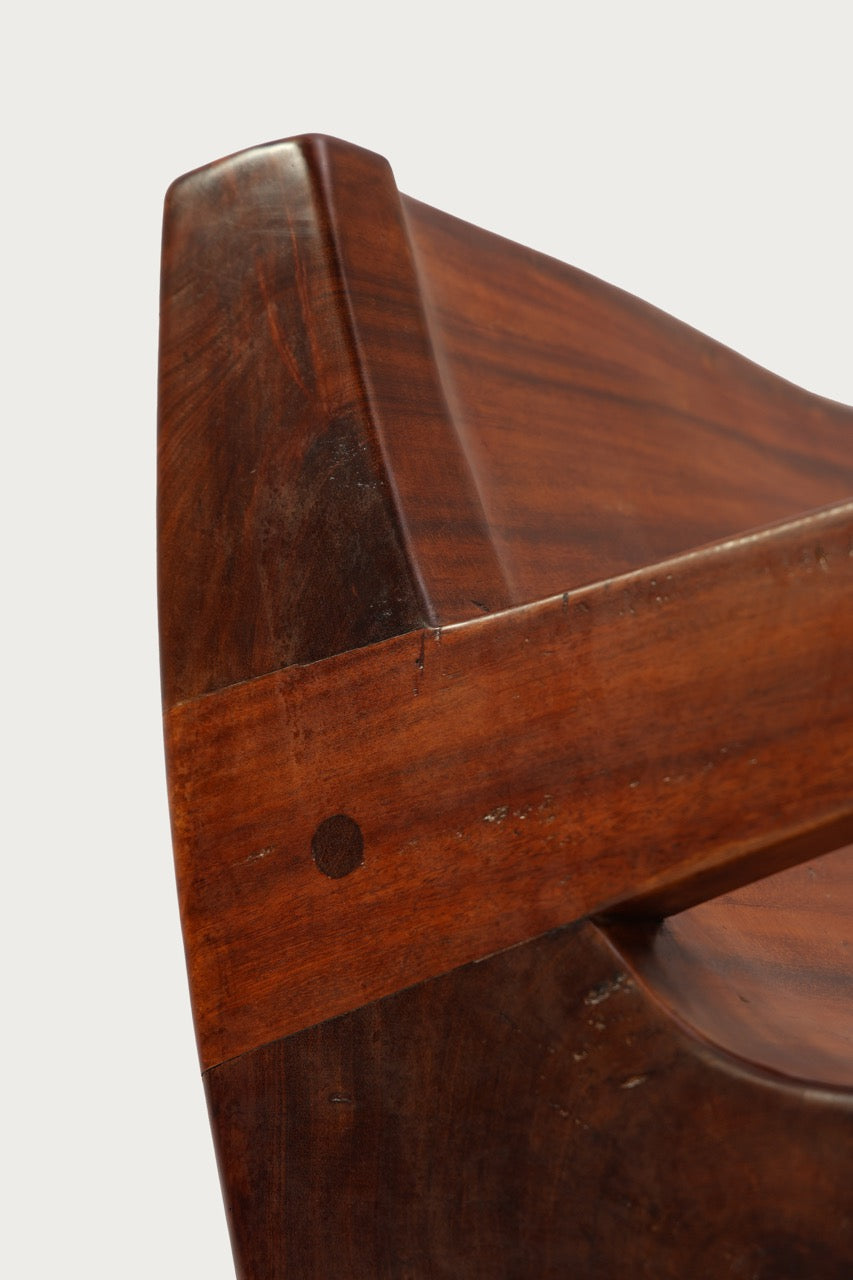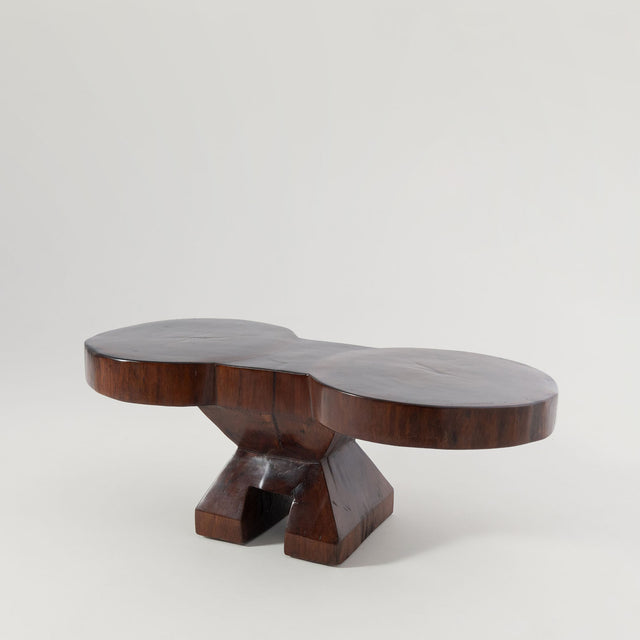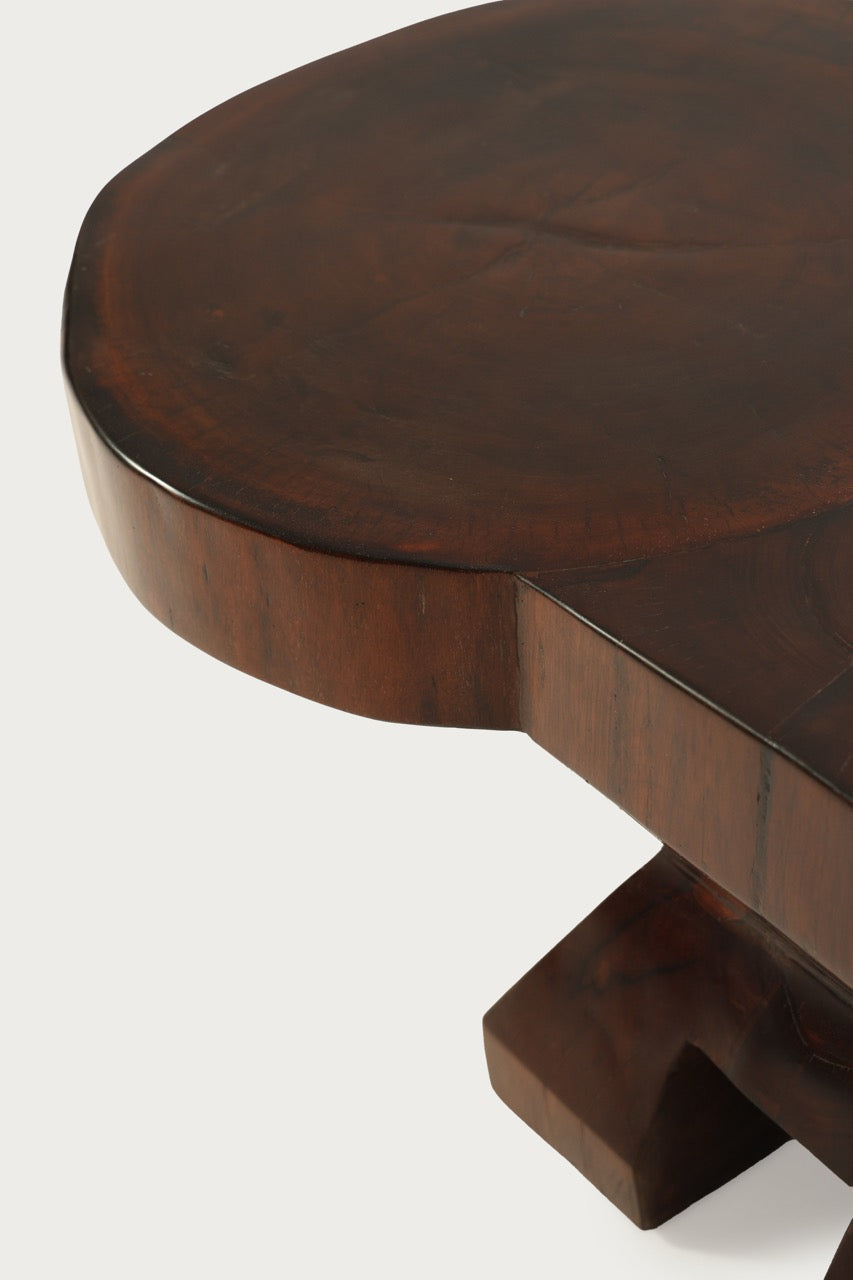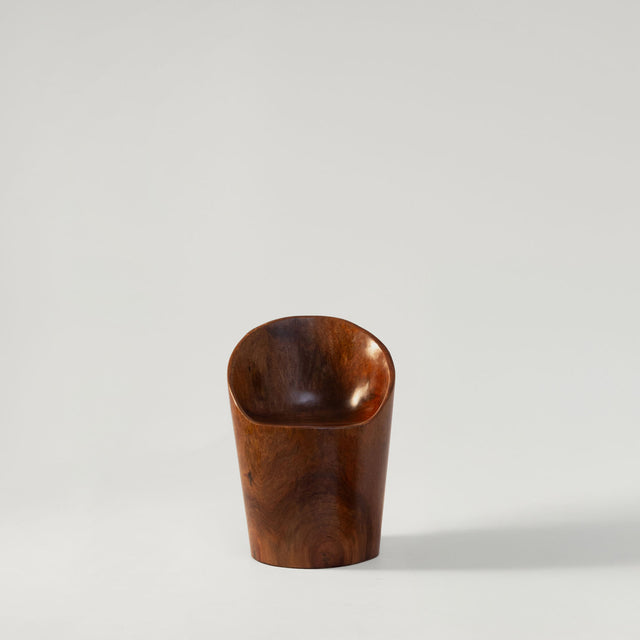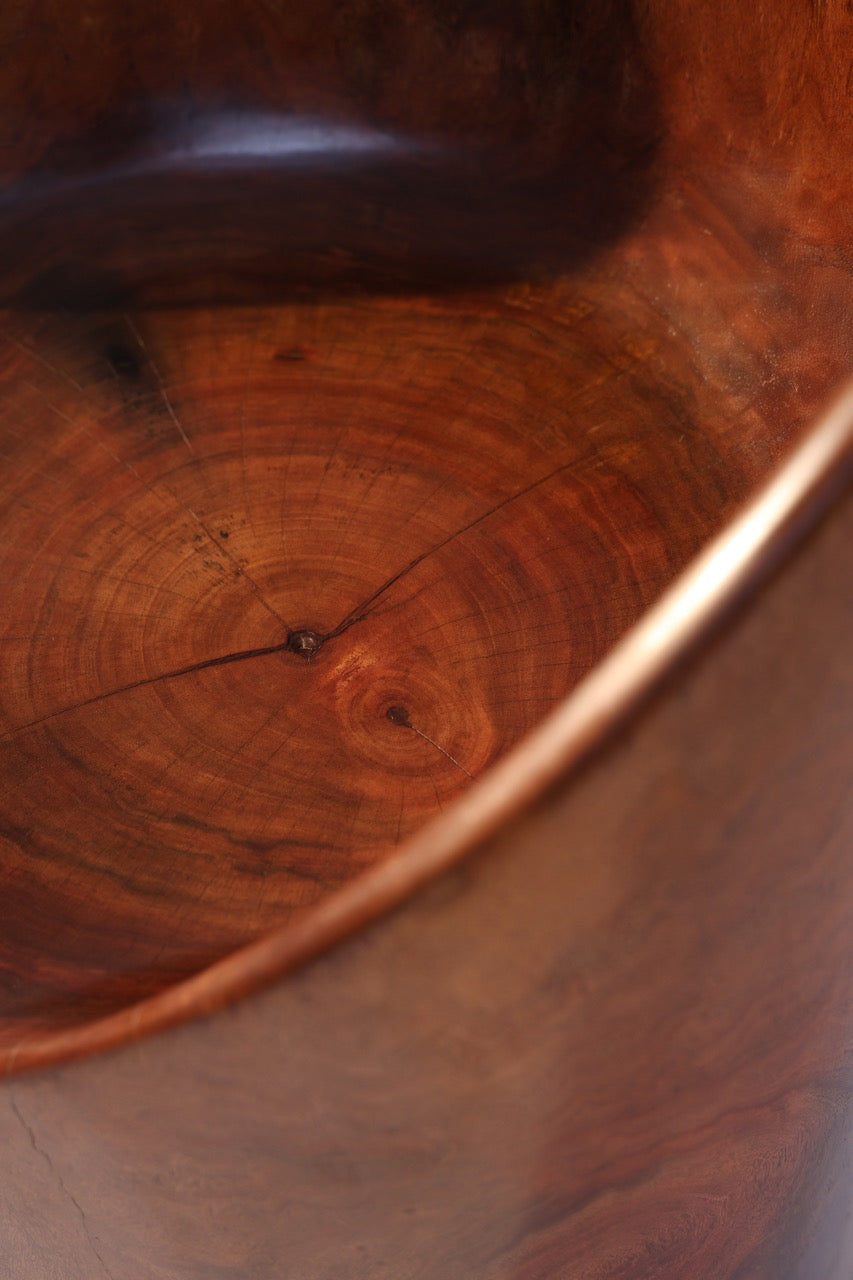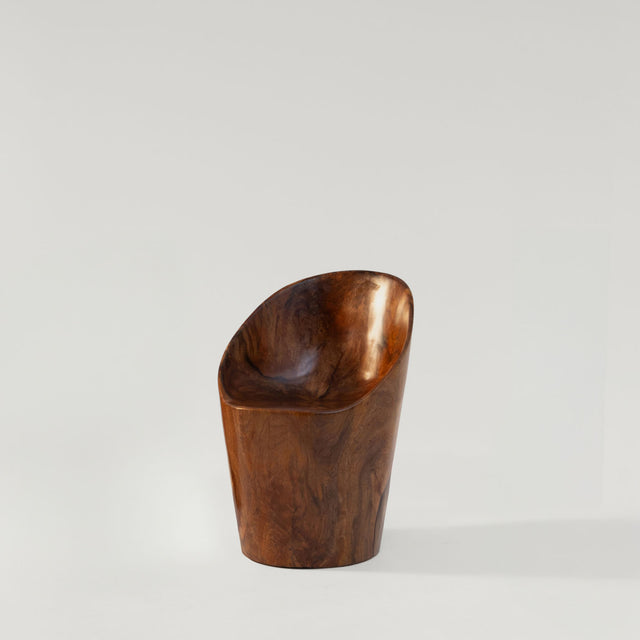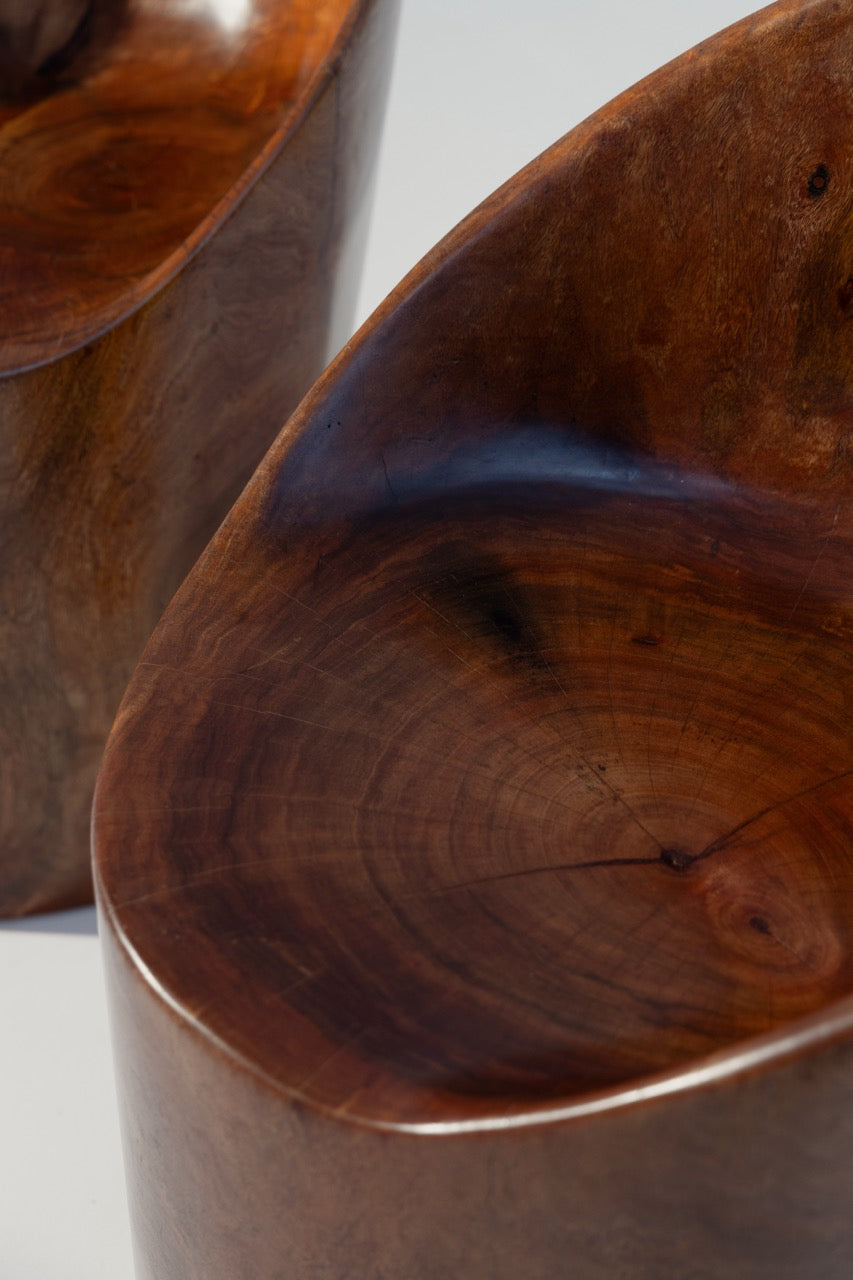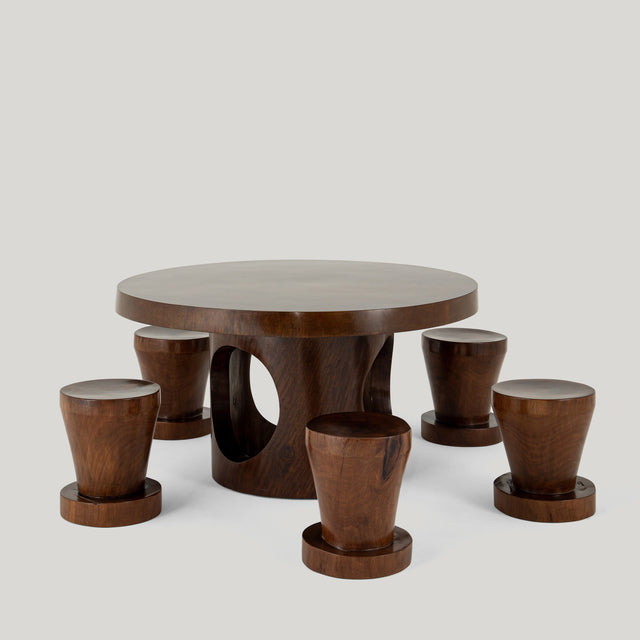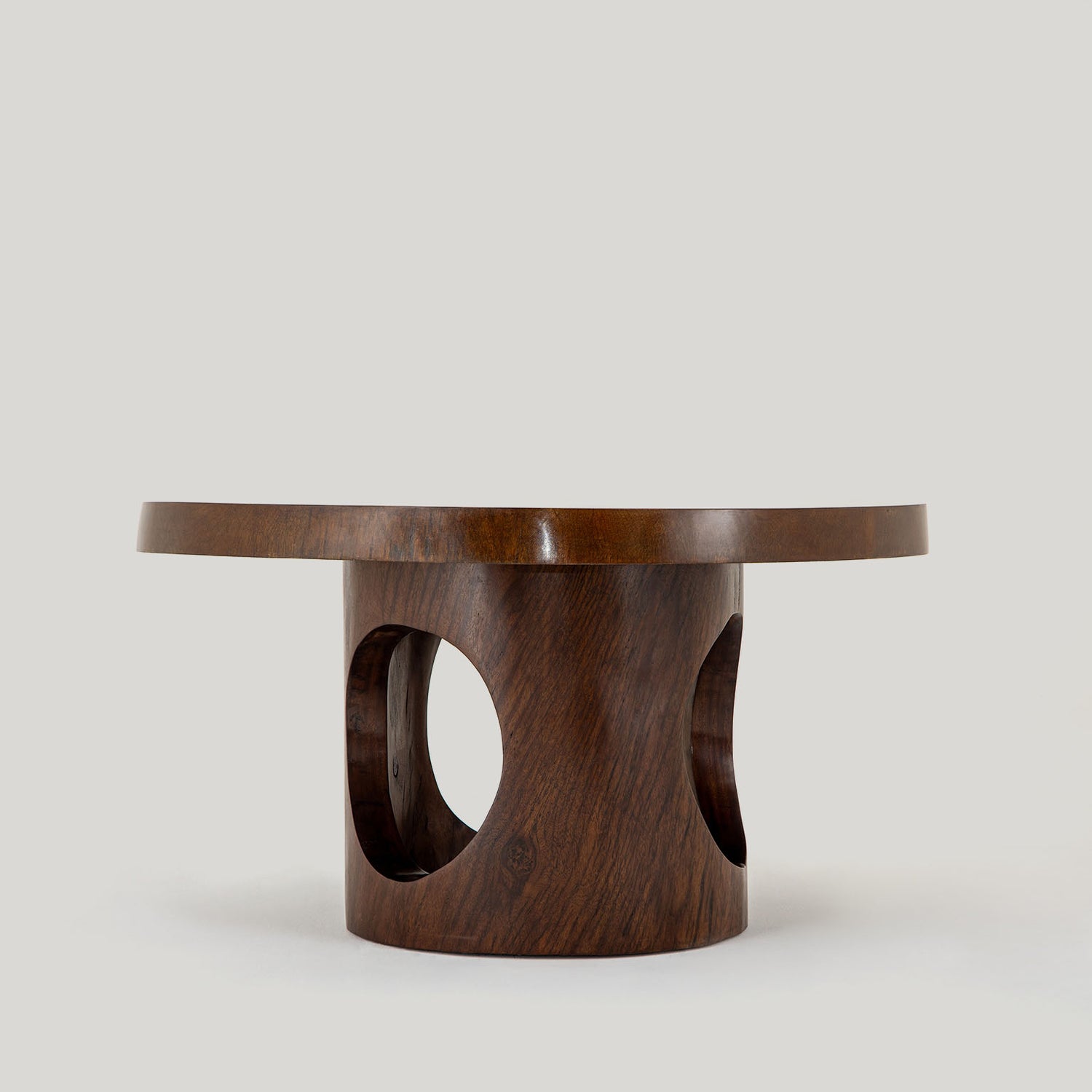Móveis Denúncia
In the 1970s José Zanine Caldas returned to Bahia in eastern Brazil and began a new series. Titled Protest Furniture / Móveis Denúncia, it directly confronted the destruction of the Atlantic coastal rainforests. Caldas created pieces from “found trees” — solid fragments of wood left behind after deforestation. Through their monumental scale, he sought to reveal the true diameter of the trunks and to preserve the memory of Brazilian trees for future generations.
Another source of inspiration came from the craft of canoe building. Industrialisation and the construction of highways had transformed the landscape, leaving artisans without commissions. Caldas invited them to redirect their expertise — to apply their intimate knowledge of wood to the art of furniture making. Their collaboration stood in stark contrast to the impersonal logic of mechanical labour: in it, creativity and the unique skills were placed at the forefront. The visionary project was deeply rooted in the local context and the history of the place. Beyond furniture production, it also initiated social change. The establishment of the Móveis Denúncia workshop led to the creation of a crafts school in Nova Viçosa — a space where residents could share knowledge, and where inventiveness and creativity were actively nurtured.
Caldas’s pieces — sensual, powerful, uncompromising — were always conceived to reveal the potential and inherent beauty of each fragment of wood. Some remained one of a kind, while others could be reproduced in several versions. After crafting a 1:10 scale model, he would hand it over to the workshop, where artisans used their knowledge to bring it to life. This careful mode of production helped revive and safeguard traditional skills, and techniques. This experience transformed the life of a region and fostered a culture of making that continues to this day in Bahia, thanks to José Zanine Caldas.
